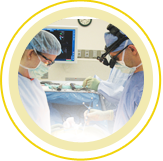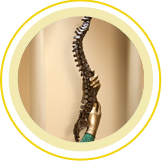Your sciatic nerve is the longest and widest nerve in your body. It connects your spinal cord and the muscles in the lower back, legs, and feet. It is affected by anything that irritates or puts pressure on the nerve root like a herniated or slipped disc. Look for these 6 signs you may have sciatica.
Facts About Sciatica
Sciatica refers to lower back, hip, and leg pain that results from an irritation of the sciatic nerve. Sciatica pain usually affects only one side of the lower body. It moves down from your lower back through your buttocks, down your thigh, and through your leg. It can sometimes extend all the way to your foot and toes.

You are more susceptible to developing sciatica based on the following factors:
- Aging
- If you have diabetes
- Being overweight
- Not exercising
- Wearing high heels
- Sleeping on a too hard or too soft mattress
- Carrying heavy things
- Smoking
- Having a job like driving long distances
- Twisting your back
6 Common Signs of Sciatica
There is pain which can be constant or intermittent. It can occur in the front, sides, or back of the thigh and leg. It can feel like a burning sensation or a sharp shooting pain radiating down.
Sciatica also has sensations like numbness and tingling down the back of the leg with pins and needles.
Weakness in the legs is another sign of sciatica. This can be accompanied by the foot feeling unusually heavy, making it difficult to lift off the floor.
Changing positions can affect the pain. It hurts worse when sitting, trying to stand up, standing for a long time, bending forward, and when coughing.
You may get pain relief from walking and using a heat pack on the rear pelvis.
Sleep can be difficult with sciatica pain. It can increase or remain constant when lying down.
If you are experiencing any of these 6 signs you may have sciatica, contact Spine & Scoliosis Specialists at 336.333.6306 for treatment options in High Point and Greensboro, NC.



